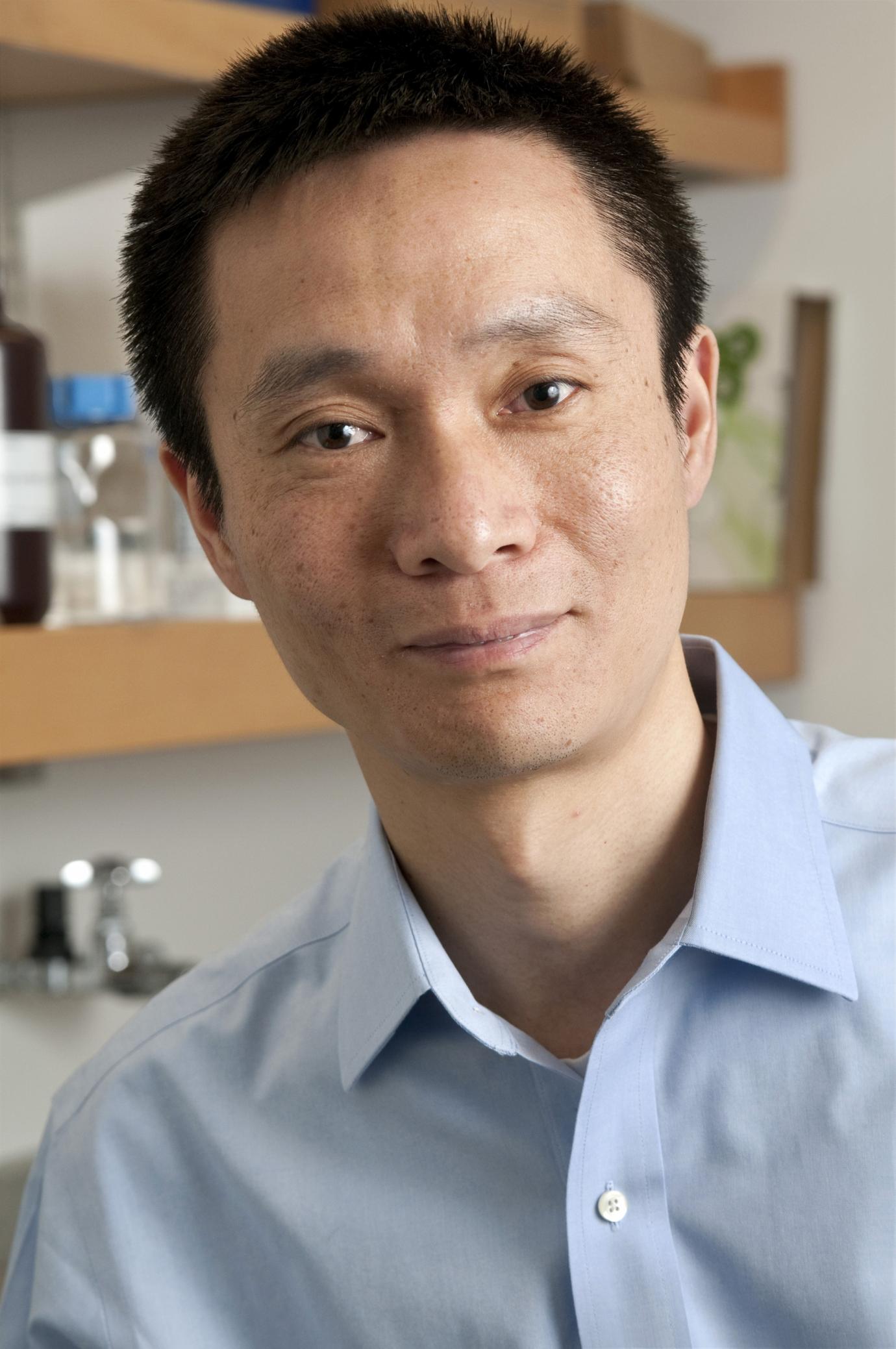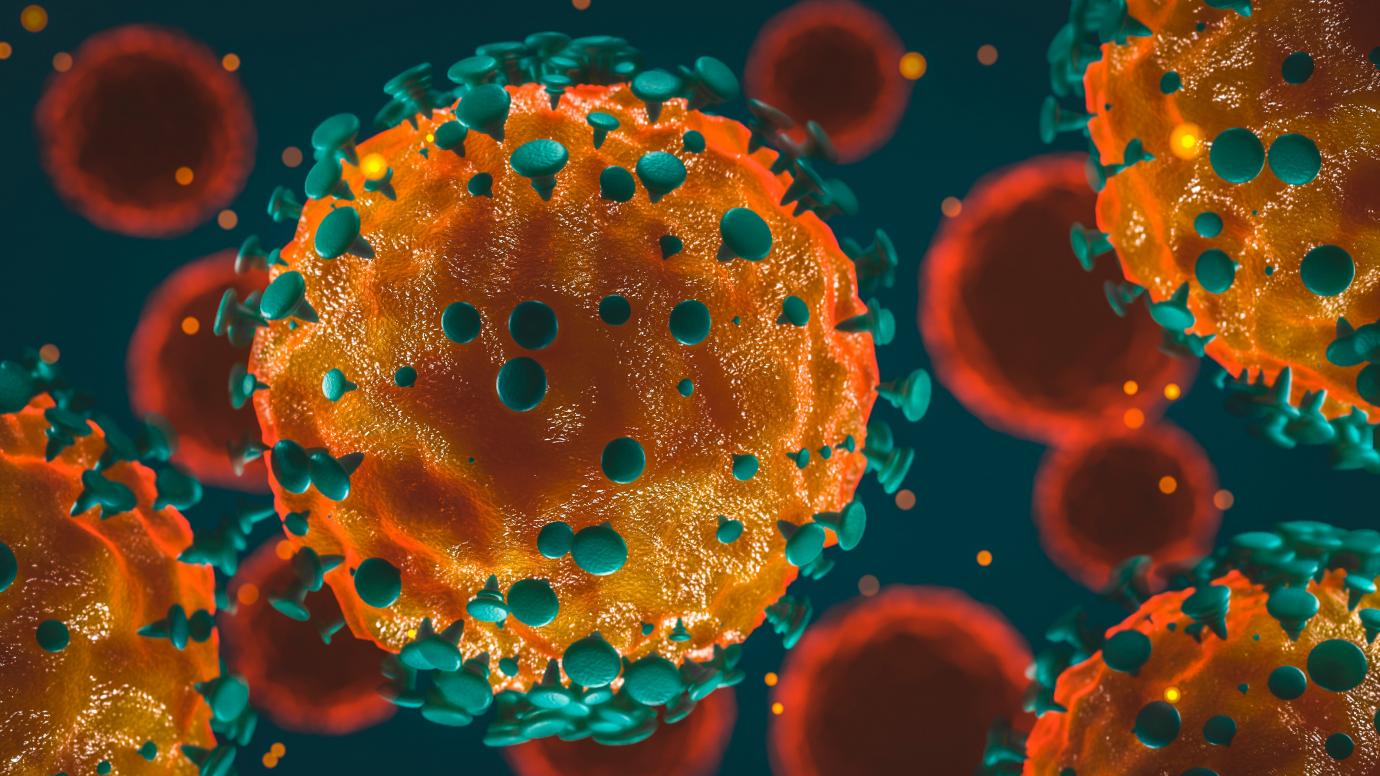March 26, 2020 I Jola Glotzer
Of SARS CoV-2 RNA
CBC Awardee Chuan He, UChicago, refocuses his lab’s efforts to decode the role RNA modifications play in COVID-19

Prof. Chuan He in a laboratory. Source: UChicago Now.
In a recent interview for UChicago News, Louise Lerner spoke with Chuan He, the John T. Wilson Distinguished Service Professor at UChicago. Dr. He, whose lab is in the Department of Chemistry, is a world-class expert specializing in studying posttranscriptional modifications of RNA and the role these modifications play in cellular processes.
Because the pathogen that causes COVID-19 disease — SARS CoV-2 — is an RNA-type virus, the purpose of the interview (reposted below) was to discuss Dr. He’s research goals in light of the current pandemic. Dr. He plans to begin investigating the SARS CoV-2 RNA structure as soon as possible. He also intends to test whether the virus RNA undergoes any naturally occurring modifications. The idea is to gain an understanding of the SARS CoV-2 RNA’s potential to be susceptible to man-made modifications which could aid in the development of COVID-19 vaccine.
Dr. He is a multiple-time CBC awardee. Most recently, he received a 2018 Accelerator Award for the project “A Highly Sensitive and Robust Test for Early Colorectal Cancer Diagnosis.”
The CBC applauds Dr. He and all other CBC scientists who are taking steps in adapting their labs to contribute to COVID-19 research. Global collaboration in efforts to combat COVID-19 is, in a sense, a new “pandemic,” but a very welcome one in this case.
March 23, 2020 | Louise Lerner | UChicago News
Understanding could boost effectiveness of future COVID-19 vaccine

The COVID-19 virus is made out of RNA. Decoding how it actually functions is key to slowing or stopping the virus’s path around the world. Copyright Shutterstock.
As scientists around the world race to decode the coronavirus that has caused more than 15,000 deaths in a matter of months, a group of University of Chicago chemists are focusing on understanding how the virus’s RNA works—which could translate to a more effective vaccine.
COVID-19, like many other viruses, is made solely out of RNA, the set of molecules that most of us remember learning in biology class as messengers that carry out instructions from DNA. But Prof. Chuan He opened a new field of biology nearly a decade ago by discovering the process is much more complex than that: messenger RNA is actually an active player that can be modified and unmodified in ways that can crucially affect cell function.
Later studies found that viral RNA can hijack their host’s modification processes to gain survival advantages. On the other hand, the host (or scientist) can also target these modifications to suppress an infection.
As the coronavirus outbreak has progressed, He’s lab has turned its attention to decoding the role that RNA modifications play in COVID-19.
“We know that some RNA viruses are highly modified, including HIV and Zika, and that these are very important to the function of the virus,” said He, the John T. Wilson Distinguished Service Professor at UChicago. “It’s possible the same is true for COVID-19.”
This information could be extremely valuable for understanding how the virus works, and especially so for making a more effective vaccine.
When researchers make a vaccine, one approach is to adapt the RNA sequence of the virus by chopping off the parts that are critical for viral infection. With its toxicity hampered, the virus can’t take hold easily, and the host’s immune system can use it to mount a response and gain immunity.
But not all vaccines are created equal. Some turn out to be more effective than others, and one crucial angle could be RNA modifications, He explained. By understanding how these modifications work in the virus, researchers could be able to tune how the vaccine’s version of the virus produces proteins, to make it easier for the host’s immune system to respond.
“This is especially a concern with this virus, which appears to have a large number of asymptomatic carriers,” He said. “If 80% of patients don’t actually show many symptoms whether or not they’re infected, if the vaccine is only partially effective, it would be difficult to tell.”
He hopes to begin working on purified viral RNA from collaborators early this week. Other UChicago researchers are adapting their labs to study COVID-19 as well.
The process will teach them a lot about viruses in general, He said. “While many people study viruses, a large amount of that effort has been focused on viruses such as HIV. We do not know much about COVID-19, and there is clearly a lot to be learned.”
SOURCE:
Adapted (with modifications) from UChicago News, by Louise Lerner, published on March 23, 2020.
Featured CBC Community member:
Chuan He
- CBC Accelerator Award (2018):
▸ A Highly Sensitive and Robust Test for Early Colorectal Cancer Diagnosis
PI: Chuan He (UChicago) - CBC Accelerator Network (CBCAN) (February 12, 2018):
▸ CBC Accelerator Network Forum
Chuan He (UChicago) — Accelerator Award program LOI presenter and award finalist - CBC Accelerator Network (CBCAN) (April 7, 2017):
▸ CBC Accelerator Network Forum
Chuan He (UChicago) — CBCAN Speaker - CBC Catalyst Award (2016):
▸ Deciphering RNA Methylation in Regulating Neuronal Functions in Health and Disease
PIs: Yongchao Ma (NU) and Chuan He (UChicago) - CBC Postdoctoral Research Award (2016):
▸ Novel Sequencing Method to Profile 5mC and 5hmC in Single Cell at Base Resolution
PIs: Lulu Hu (postdoc) and Chuan He (UChicago) - CBC Postdoctoral Research Award (2015):
▸ Novel Sequencing Method to Profile N6-Methyldeoxyadenosine in Single-base resolution
PIs: Guan-Zheng Luo (postdoc) and Chuan He (UChicago) - CBC Postdoctoral Research Award (2014):
▸ Screening of Small Molecule Inhibitors for Nuclear RNA M6a Methyltransferase Complex
PIs: Jianzhao Liu (postdoc) and Chuan He (UChicago) - CBC Postdoctoral Research Award (2014):
▸ Pseudouridine Sequencing – A Roadmap to the New Biology of Mrna Pseudouridine Modification
PIs: Dan Dominissini (postdoc) and Chuan He (UChicago) - CBC Scholars “Loop Connections” Seminar (2013):
▸ Reversible RNA and DNA Methylation in Biological Regulation
Chuan He (UChicago) — Seminar Speaker - 10th Annual CBC Symposium (2012):
▸ Epigenomics
Chuan He (UChicago) — Symposium Speaker - CBC Catalyst Award (2011):
▸ Capturing Kinetically Labile Multiprotein Assemblies on DNA by Chemical Crosslinking
PIs: Jung-Hyun Min (UIC) and Chuan He (UChicago) - CBC Catalyst Award (2009):
▸ Virulence and latency regulation in M. tuberculosis
PIs: Chuan He (UChicago) and Scott Franzblau (UIC)
